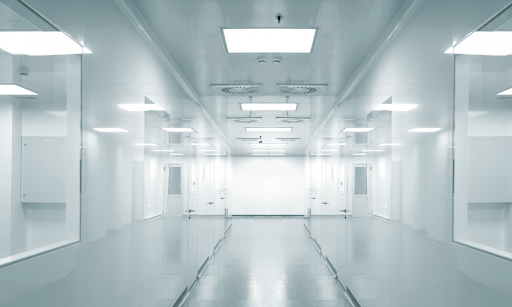Is Moisture Control Possible for Concrete Floors?

Concrete is a naturally porous material, so a common question is whether or not moisture control in concrete floors is possible. The answer is yes, you can control moisture in a concrete floor. Controlling moisture in concrete floors is possible in several ways, all of which we describe below. Continue reading to learn more about moisture control and why it’s so important to the integrity of your concrete floor.
Common Causes of Moisture in Concrete
As mentioned earlier, concrete is a naturally porous material. Think of your concrete floor as a sponge. Even after you wring the water out of it, it still has moisture on the inside that you can’t see. If there’s moisture in your concrete, it could be the result of any of the following:
- There was an excess of water when the cement was first mixed, resulting in a prolonged drying time.
- The slab of concrete absorbed groundwater after it was installed.
- If the slab of concrete was exposed to the elements, such as rain, snow, and melting ice at the worksite.
- The slab of concrete was exposed to a sprinkler system on the property while the installation was in process.
- There was either an unexpected or unknown water leak at the installation site due to faulty or old plumbing.
- The humidity levels at the worksite were unusually high, causing the concrete slab to absorb the excess humidity in the air, which is caused by condensation.
While this isn’t an exhaustive list, these are a few of the most common problems concrete floors may face when exposed to excess moisture.
How Moisture Affects Concrete Floors
Moisture in concrete floors can cause a host of problems for commercial building owners. First and foremost, the more moisture a concrete floor holds, the more humid a room will be. This can be challenging not only for employees to deal with, but it can also wreak havoc on pharmaceutical labs. This is because any type of excessive temperature conditions, whether hot or cold, can cause medicines to break down. This ultimately lowers their rate of effectiveness.
Aside from the risks mentioned above, a concrete floor that has a lot of moisture can fall victim to collapse. This puts you, your staff, and your patrons at risk for a slip and fall accident, while simultaneously opening you up to liability in terms of a personal injury or workers’ compensation claim.
Fortunately, there are several ways you can prevent moisture buildup in your concrete floors, which we detail below:
Moisture Control in Commercial Concrete Floors
One of the easiest ways of stopping a moisture buildup in a concrete floor is to use a low-permeance vapor barrier or retarder. A vapor barrier – a type of material that prevents moisture from entering concrete – is a common choice in facilities that emphasize temperature control, i.e., auto display shops, food and beverage facilities, and pharmaceutical labs.
Vapor retarders, on the other hand, will reduce the transmission of water vapor into the concrete. In other words, these vapor retarders sometimes allow the movement of moisture into the concrete where it might otherwise condense due to humidity.
Another way to stop moisture in commercial concrete floors is to apply a sealant to the concrete floor. A sealant is a topcoat applied to the surface of clean, dry concrete. It can prevent dirt, grime, and water from seeping into the floor’s naturally porous surface. The most common sealants used in this type of project are acrylic, urethane, and epoxy. Sealants are a popular choice – and desired by commercial business owners – because they also elevate the look of your concrete floor. Sealant top coats usually add a nice shine to otherwise dull concrete floors. Plus, they don’t take a lot of time to dry.
Last but not least, another way you can stop moisture from building up in your concrete floor is to let it naturally dry out. You should do this before installing the concrete slab.

